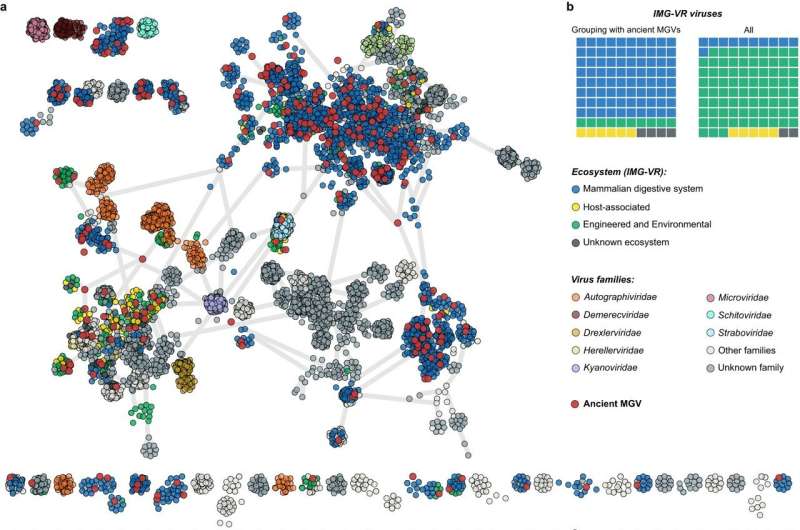Ancient phage genomes from palaeofaeces are related to currently known mammalian-gut-associated viruses. Credit: Nature Communications (2024). DOI: 10.1038/s41467-023-44370-0
The results of research on ancient viruses infecting bacteria have been published in the journal Nature Communications. Researchers from the Faculty of Biology at Adam Mickiewicz University, Poznan, have made the first genome reconstruction of ancient bacteriophages (viruses attacking bacteria) from the human intestine, datable to the last 5,000 years.
The research includes several hundred bacteriophages essential for the functioning of the microbiome. "Most startling was the discovery of a virus, nearly unchanged for 1,300 years, in fossilized human feces found in a Mexican cave," says Andrzej Zielezinski, Ph.D.
"This discovery sheds new light on the complex evolutionary history of bacteriophages, hitherto widely regarded as rapidly evolving viruses, and contributes to a better understanding of the dynamics between viruses and bacteria," adds the AMU scientist.
The article is the result of a master's thesis written by Piotr Rozwalak and his research supervisors Andrzej Zielezinski, Ph.D., and Jakub Barylski, Ph.D., in collaboration with scientists from Friedrich Schiller University in Jena and the University of Greifswald, Germany.
More information: Piotr Rozwalak et al, Ultraconserved bacteriophage genome sequence identified in 1300-year-old human palaeofaeces, Nature Communications (2024). DOI: 10.1038/s41467-023-44370-0
Journal information: Nature Communications
Provided by Adam Mickiewicz University
























